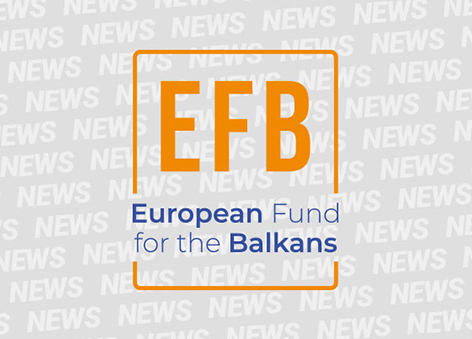
26.04.2012 All News
In the Programme portion of the GLOBSEC Bratislava Security Conference 2012, the European Fund for the Balkans co-organised on Friday, 13 April, the Night Owl Session: The Balkans and the EU – New Realities.
The session was chaired by Hedvig Morvai Horvat, Executive Director of the EFB, along with Amb. Miroslav Lajčak, Deputy Prime Minister and Minister of Foreign Affairs of the Slovak Republic; H.E. Nikola Poposki, Minister of Foreign Affairs of the Republic of Macedonia; H.E. Edmond Naxhinasto, Deputy Prime Minister and Minister of Foreign Affairs of the Republic of Albania; and Sonja Licht, President of the Belgrade Fund for Political Excellence.
Does the region exist? Is there common cultural space? And is there proper regional cooperation? What is the state of affairs in the Western Balkans? How are the countries of the region facing current political, economic and social challenges? What are the current key factors defining the European Union enlargement policy? How to keep the Balkans anchored to the EU when the prospect of accession is not tangible? These and similar questions regarding ’new realities’ in the Western Balkans were the focus of the session.
After the 2010 Balkan Monitor reported “the EU has lost its magic but has not lost its importance,“ it became clear that “if the citizens of the region have any realistic hope of a better life and political stability, then that has to be related to the prospect of their country joining the EU.”
“The Balkans are a part of Europe. All the problems that the region faces are European issues and not predominately Balkan ones. And the questions that people in the region ask themselves are not related to the past, they are related to the future. Moreover, it is clear today, that the Balkans’ ‘new normality’ is very much a reflection of Europe’s ‘new normality’.” It will be up to the leaders and the people of the Western Balkans and the EU to face these new realities, analyse them and find a way to successfully move forward.
Minister Lajčak stated that EU enlargement is not only in the interest of candidate countries, but the EU itself, because with the inclusion of the whole of the Balkans, the safety and living security of the region would be complete. Answering about the main conditions for membership negotiations and acceptance of Macedonia, Serbia and Kosovo to the EU, he underlined that without normalisation of relations between Macedonia and Greece over the former’s name and Serbia and Kosovo over status, there are no possibilities for negotiations over EU acceptance.
Minister Nikola Poposki optimistically talked about the position of Macedonia seven years after the acceptance of its candidacy for EU membership, believing that negotiations with Greece will find a compromise solution for the name of the former Yugoslav state. “It takes more courage on all sides,” he pointed out, adding that the advantage of the current situation in the region for the solution of both the Macedonian and Kosovo issue is in the evident border openness and determined intention of all the countries in the region to join the EU.
Minister Haxhinasto pointed out that Albania supports the resolution of the Macedonia and Kosovo dispute issues.
Sonja Licht stressed the importance of regional cooperation and noted that the region has made remarkable achievements regarding cooperation, which unfortunately are not always visible. She proposed that 2014, the centenary of the beginning of WWI, be marked at the regional level by presenting the Balkans as a place focused on future and joint development.
Find out more at GLOBSEC Bratislava Security Conference 2012
{gallery}gallery/19{/gallery}






